We tend to assume that when a cat purrs, it means they’re happy, but it’s not that simple.

While purring can be a sign of contentment, and often is, it’s also used for communication, self-soothing, and sometimes when something isn’t quite right. Here are some of the many things cat purring might really mean that go beyond the usual cuddly assumptions. Decoding which one applies to your feline friend is up to you.
1. They’re genuinely content.
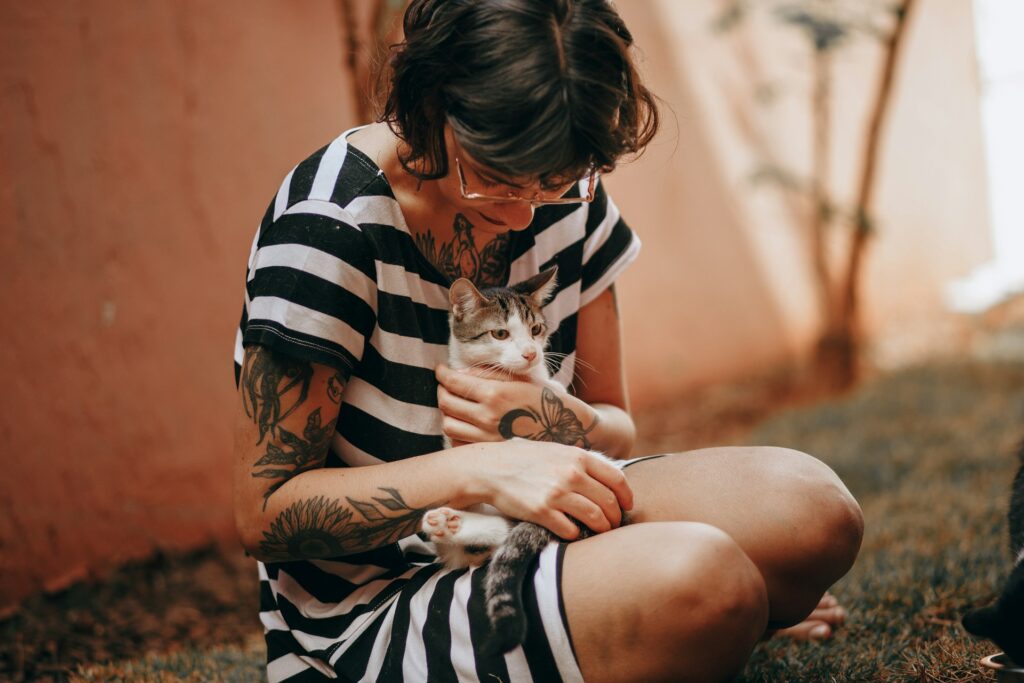
This is the classic reason we all know—cats purr when they’re relaxed and comfortable. If your cat is stretched out in a sunny spot or dozing in your lap with a soft rumble going, that’s a pretty safe sign of contentment. It’s often compared to a human sigh of relief, and in these moments, it really is just your cat saying, “This feels good.” But don’t assume it’s the only reason—they’re more emotionally layered than they let on.
2. They’re asking for something.
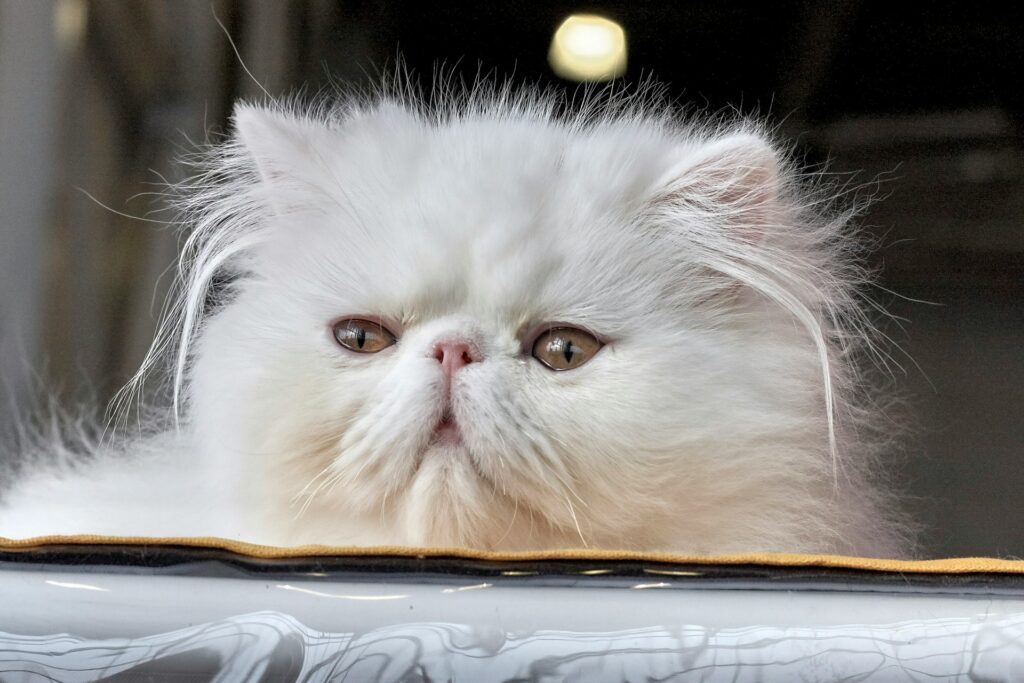
Cats are sneakily smart communicators. Some have a special type of purr that includes a higher-pitched, almost cry-like frequency—especially when they want food or attention. It’s a sound that’s surprisingly effective at getting humans to respond. This version of purring is a bit more urgent and deliberate, and studies suggest it mimics the frequency of a baby’s cry. So yes, your cat may literally be manipulating you with their purr, and it probably works.
3. They’re soothing themselves.
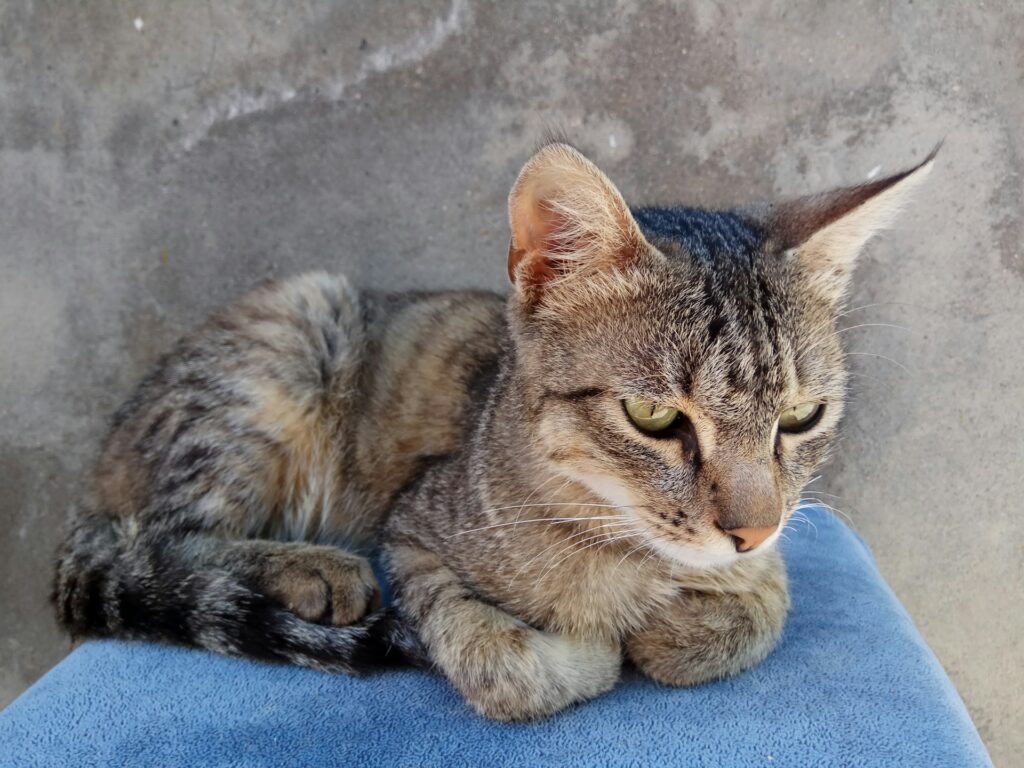
Cats don’t just purr to communicate with us—they also do it to calm themselves down. When they’re stressed, injured, or uncertain, purring can serve as a built-in coping mechanism. It’s like their version of humming under your breath when you’re anxious. If your cat purrs at the vet or during a thunderstorm, it might not mean they’re happy at all—it could be their way of dealing with discomfort or fear.
4. They’re in pain.
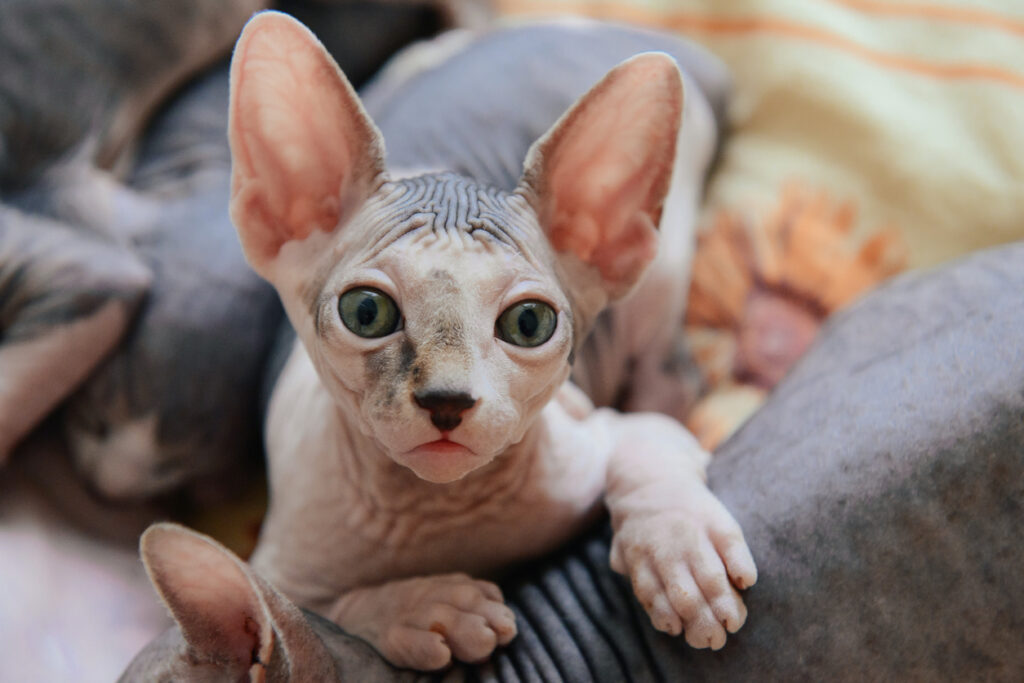
This is one of the more surprising ones—some cats will purr when they’re in pain. It can happen during labour, illness, or injury. It seems counterintuitive, but again, it ties back to that self-soothing behaviour. It’s their way of calming their body and maybe even encouraging healing (more on that later). So if your cat’s purring a lot and something seems off, don’t write it off as a good sign—check for other symptoms too.
5. They’re healing.
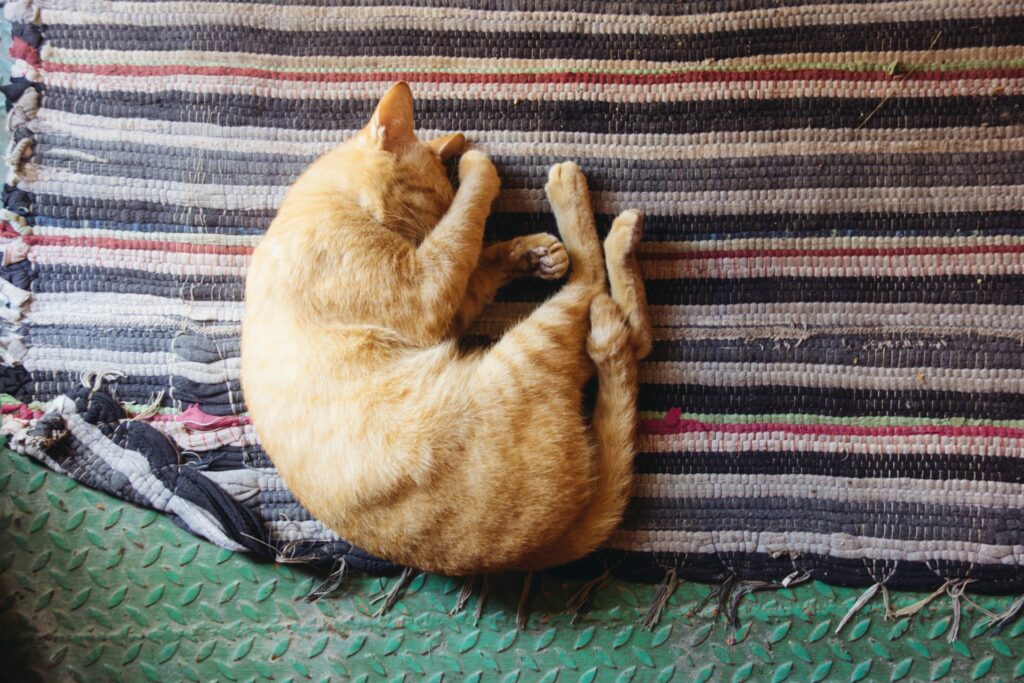
Here’s where things get wild: some researchers believe that the frequency of a cat’s purr may actually promote healing. Cat purrs vibrate in the range of 25–150 Hz, which aligns with frequencies used in physical therapy for things like bone growth and tissue repair.
This could be why cats are so good at bouncing back from injuries, or why they purr when they’re hurt. It might literally be a form of self-repair built into their biology. Honestly, cats are just showing off at this point.
6. They’re greeting you.
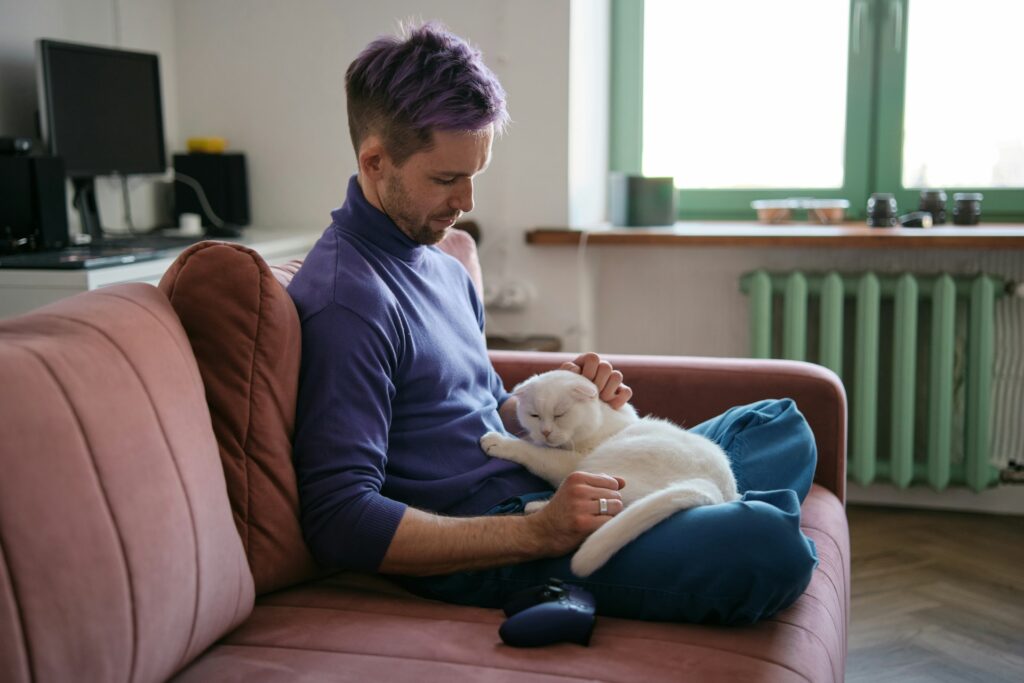
Some cats will purr when they see their favourite person—before you even touch them. It’s like a warm little “hello,” especially if they’ve missed you or are excited you’re home. This kind of social purring is a subtle way they show connection. It’s soft, spontaneous, and a bit more upbeat than other types of purring. Think of it as a cat’s way of waving—just with sound instead of paws.
7. They’re trying to calm you down.
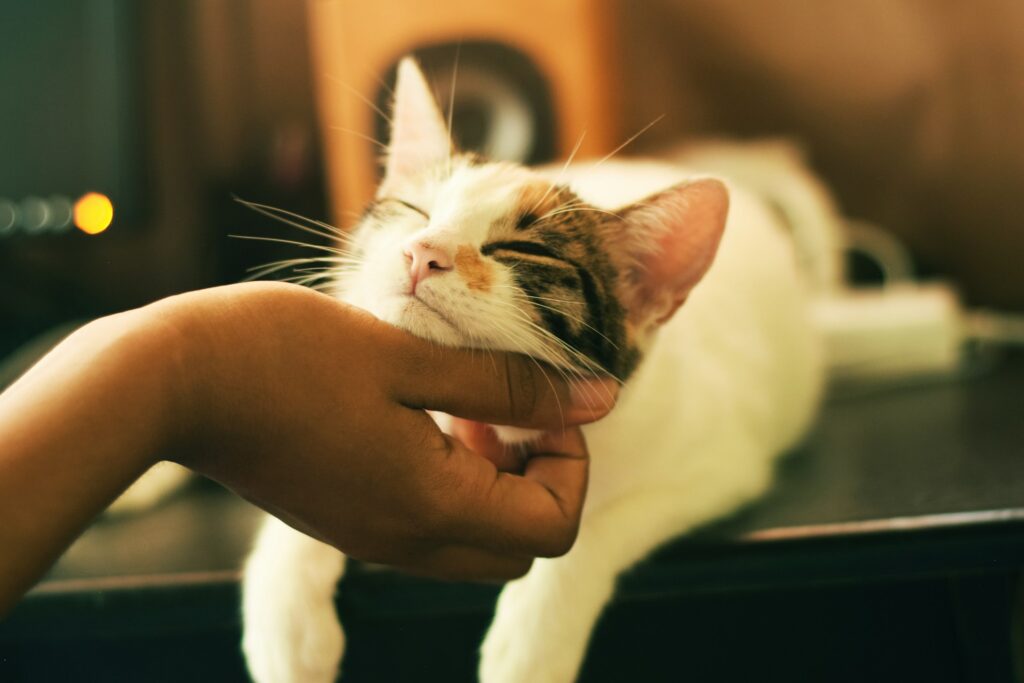
In multi-species households, cats sometimes purr when people are upset, unwell, or stressed. There’s some thought that cats pick up on emotional energy and use purring to settle the atmosphere. Whether it’s empathy or just their natural rhythm rubbing off on you, it can feel surprisingly comforting. Many people report their cats seem to “know” when something’s wrong. Purring in those moments might be their quiet way of showing up for you.
8. They’re trying to bond with you.
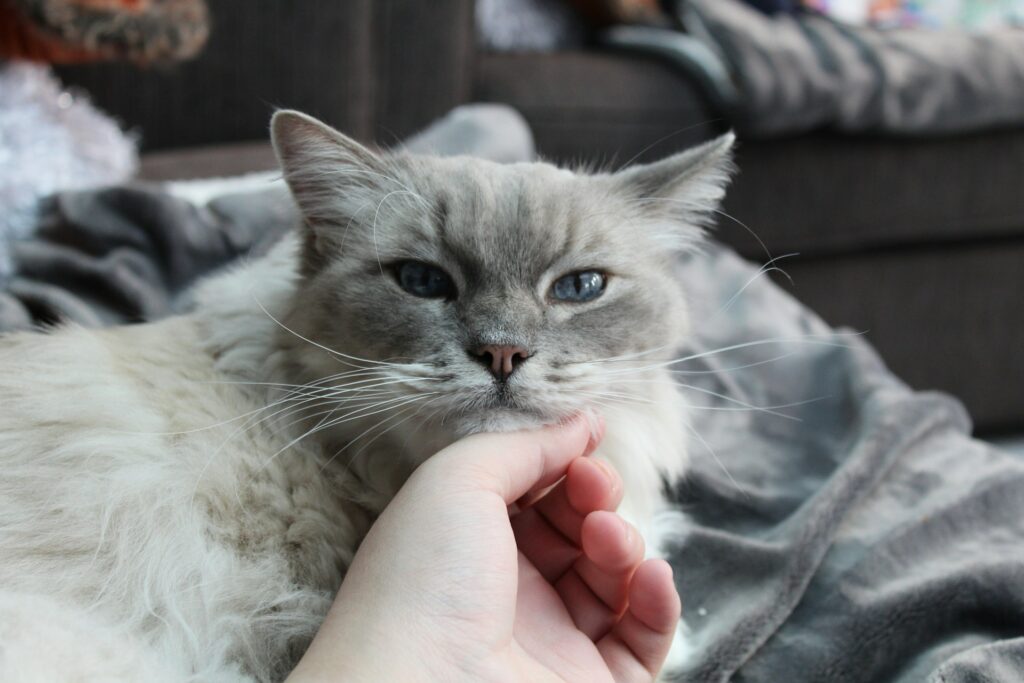
Mother cats purr to their kittens from birth, creating a sound-based bond even before their babies can see properly. Adult cats often carry that instinct into their human relationships too. So, when your cat curls up next to you and purrs, they may be trying to recreate that early sense of safety and connection. It’s less about mood and more about closeness. Basically, they’re imprinting you as family.
9. They’re dreaming.
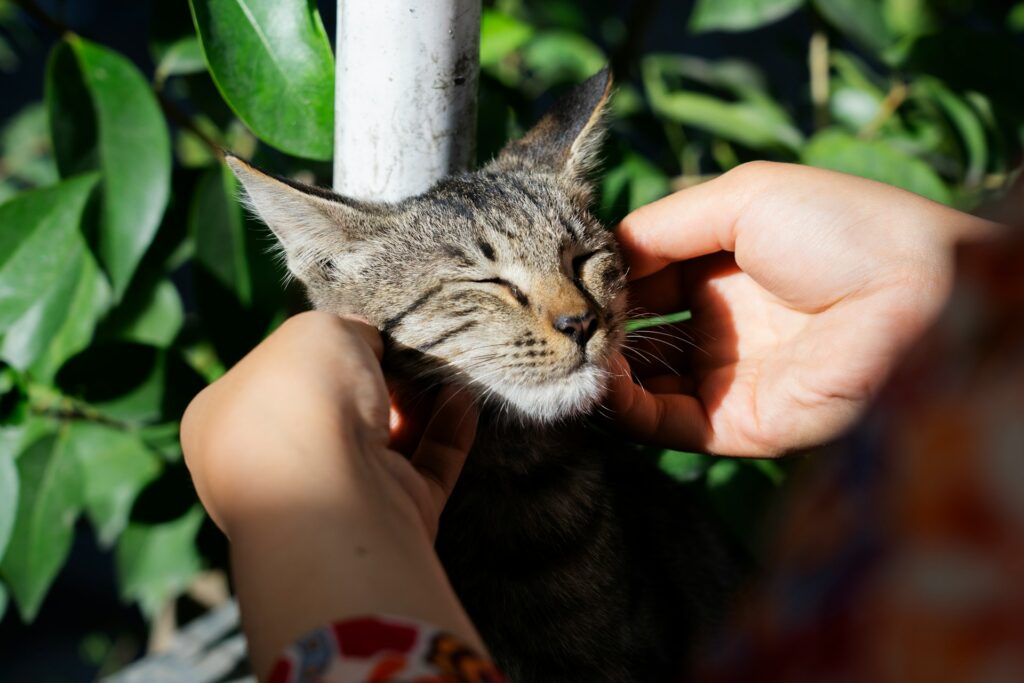
Yes, cats sometimes purr in their sleep, and while it’s hard to say exactly what’s going on, it’s likely tied to the dream world. They may be reliving a pleasant moment—or navigating something more stressful while self-soothing. It’s worth noting that purring during sleep is usually softer and intermittent. It’s not a red flag unless it’s accompanied by other signs of discomfort when they’re awake.
10. They’re in a state of “default contentment.”
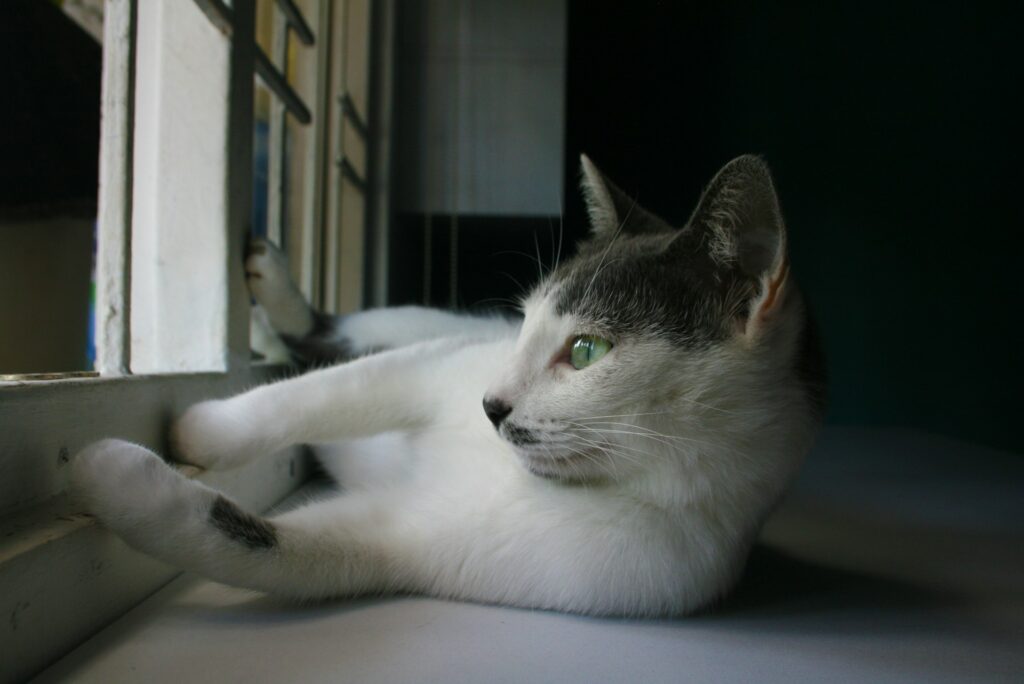
Some cats purr as a sort of resting state, like a background hum that means everything is okay. It’s not always tied to a specific event or feeling. It’s just part of their natural rhythm, like some people always having a small smile. If your cat is the kind who purrs when they’re doing absolutely nothing, consider it a good sign. You’ve likely created an environment where they feel consistently safe and settled.
11. They’re marking territory—subtly.
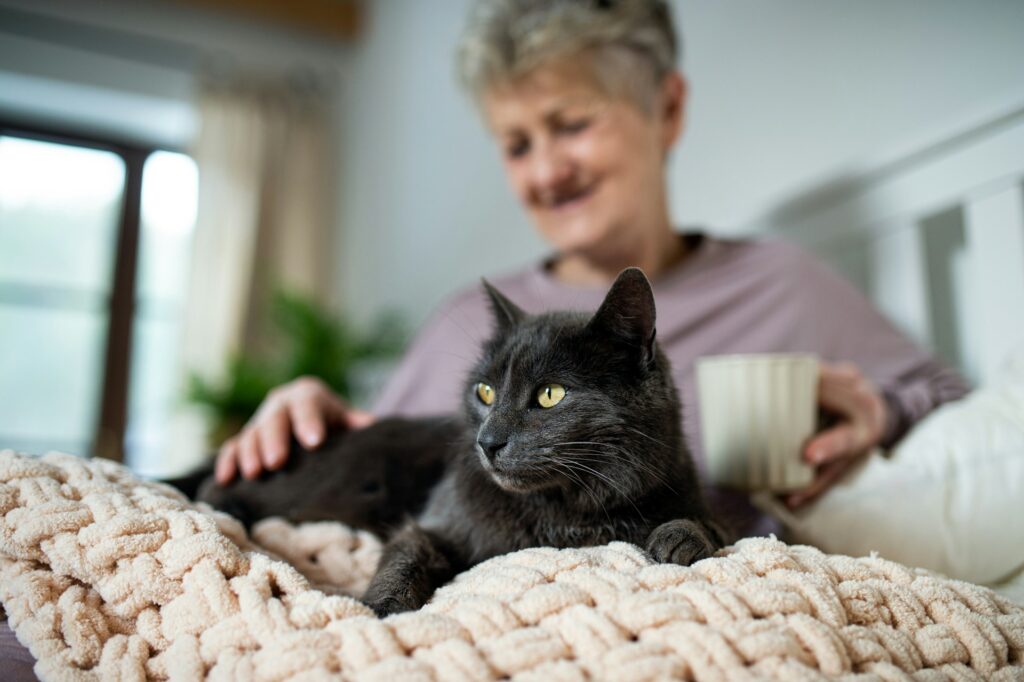
Cats don’t just mark with scent; they also use sound. Purring can be part of a cat’s way of saying, “This person is mine.” It’s especially noticeable when a cat purrs while lying on your stuff or blocking you from other pets. It’s not possessive in a negative way, but it’s definitely territorial. They’re laying emotional claim to you in the gentlest way possible. That little buzz is basically them putting a flag in your lap.
12. They’re seeking reassurance.
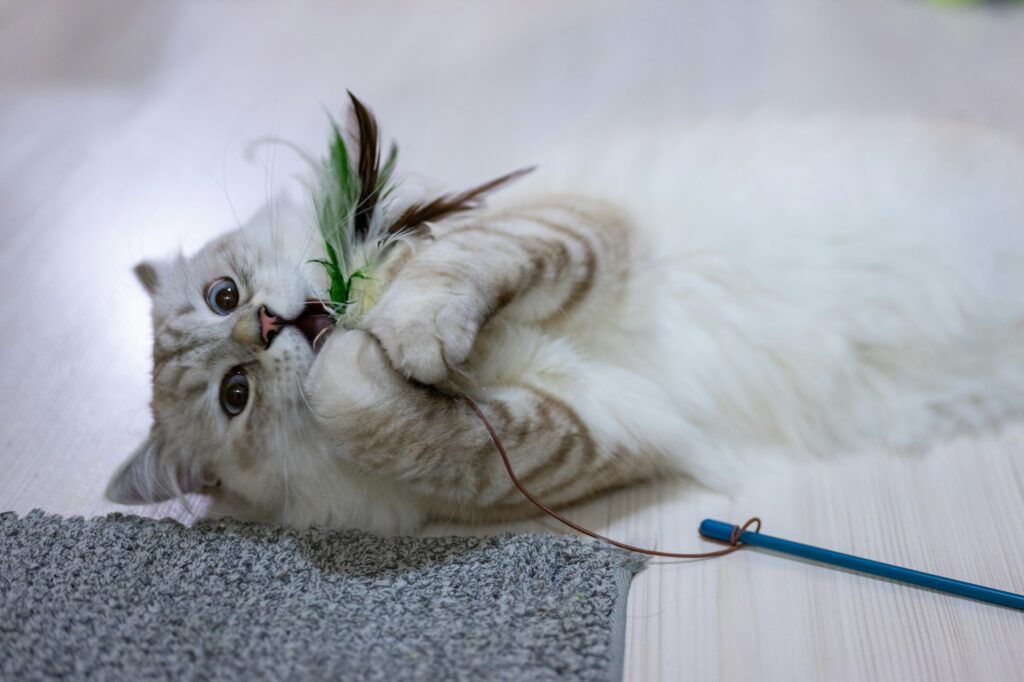
If your cat is purring while hiding, clinging to you, or acting unsure, it may be a way of asking for reassurance. They want to be close, they want to feel safe, and purring is the mechanism that helps reinforce that. It’s like a cat’s version of repeating something calming to themselves. It won’t always mean panic, but if it’s paired with unusual behaviour, pay attention—they might just need extra comfort.
13. They’re trying to stop a fight.
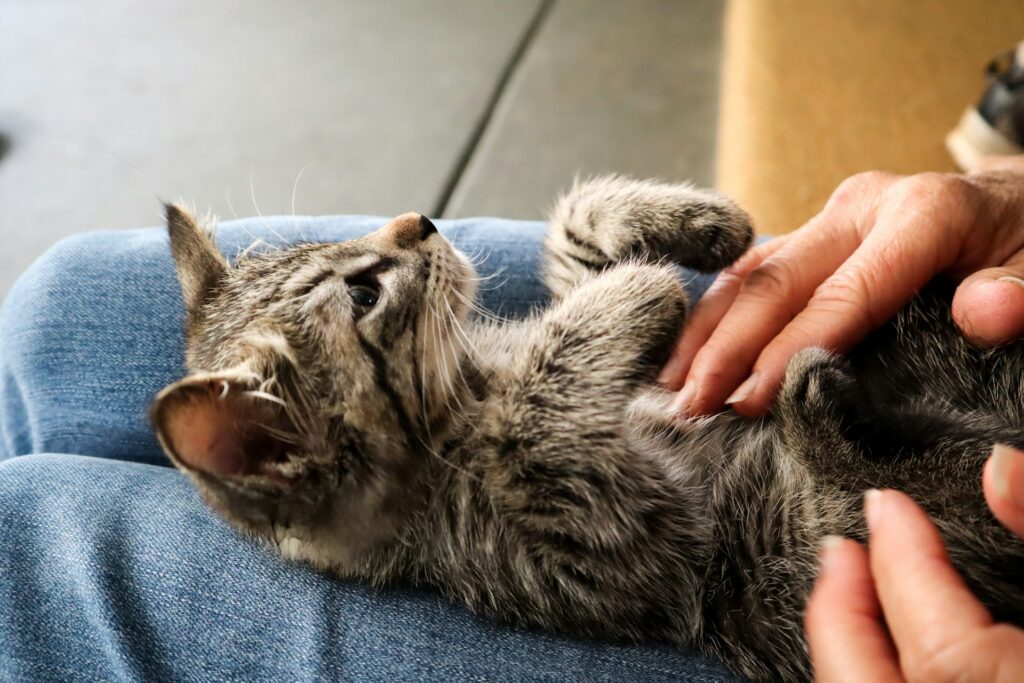
In multi-cat households, purring can sometimes act as a social buffer. A more passive cat might purr near a more dominant one to avoid confrontation or signal non-aggression. It’s a bit like a peace offering—subtle and understated, but effective in lowering tension. Cats don’t shout “chill out” at each other. They purr it instead, hoping it’ll be enough.
14. They’re enjoying a memory.
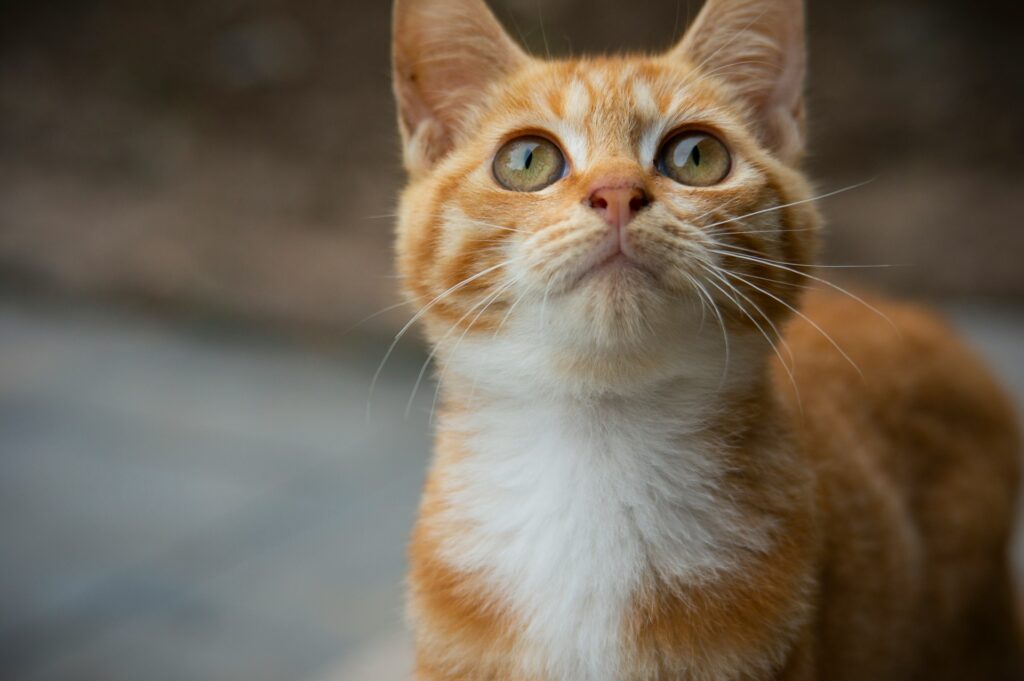
Purring can be linked to nostalgia. If your cat starts purring when they visit a specific room or sit on an old cushion, it might remind them of something positive. They don’t have human-style memories, but they definitely associate spaces and smells with experiences. In this case, purring is part of a low-key memory loop—a little echo of previous happiness tied to familiar things. It’s one more way cats are surprisingly sentimental.
15. They’re feeling safe while watching the world.
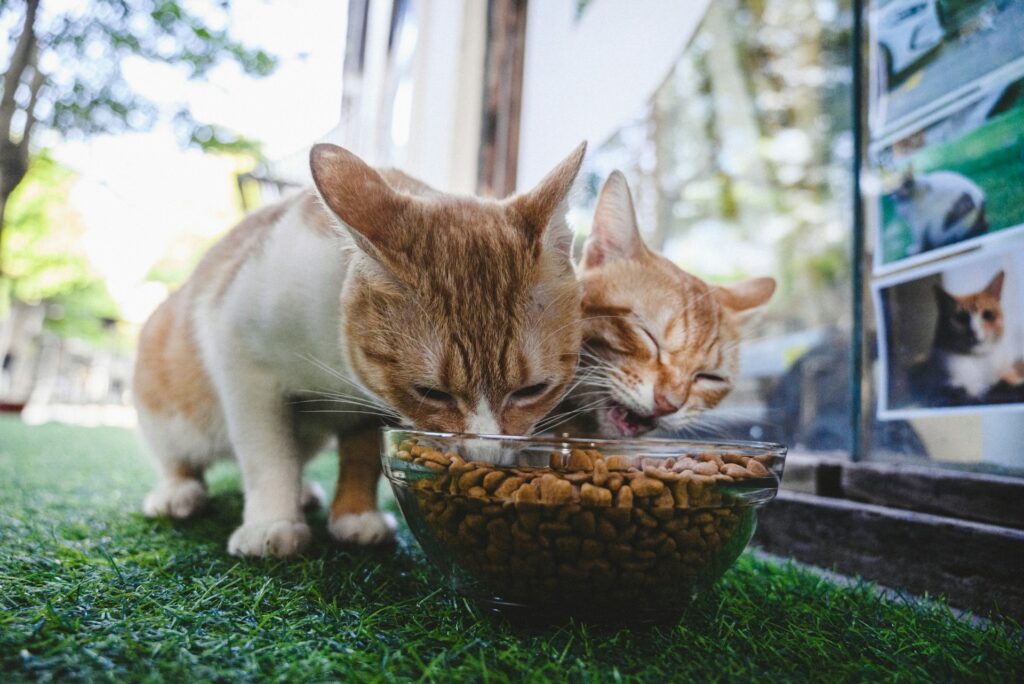
Ever see your cat purring while staring out the window? It’s not always about wanting to chase something. Sometimes they’re just enjoying the moment and purring as a response to calm stimulation. It’s their version of being grounded. Everything feels secure, and they can observe without being on edge. It’s a good sign that they trust their space, even if they’ve got one eye on the local pigeons.
16. They’re purring out of habit.
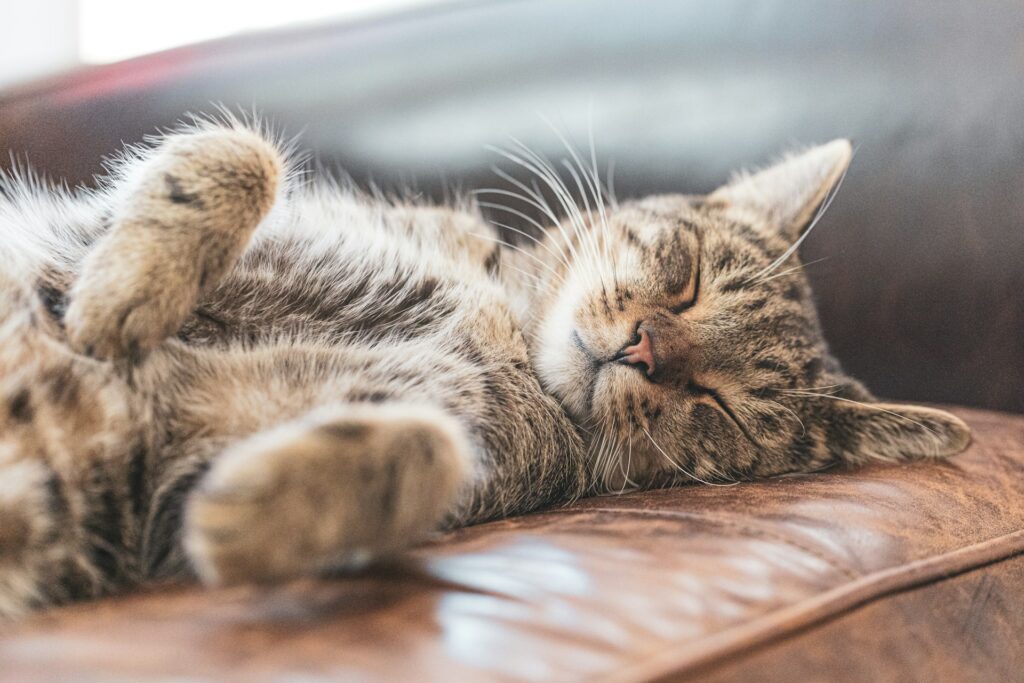
Like how some people hum without thinking, some cats just purr without a specific reason. It becomes a habitual part of their behaviour over time, especially if it’s been reinforced by attention or treats. This doesn’t mean the purring is meaningless—it’s still a part of how they process and exist in their environment. It just might not always carry an emotional punch every time it happens.
17. They’re mimicking what worked before.

Cats are brilliant at noticing what gets them rewards. If they purred once and got a cuddle or snack, chances are they’ll try it again in similar situations. It becomes a learned behaviour rather than an emotional one. As time goes on, this can blur into their general communication style. Your cat isn’t manipulating you—okay, maybe they are—but more than anything, they’re adapting. Purring becomes a smart tool in their emotional toolbox.
18. They’re trying to stay unnoticed.
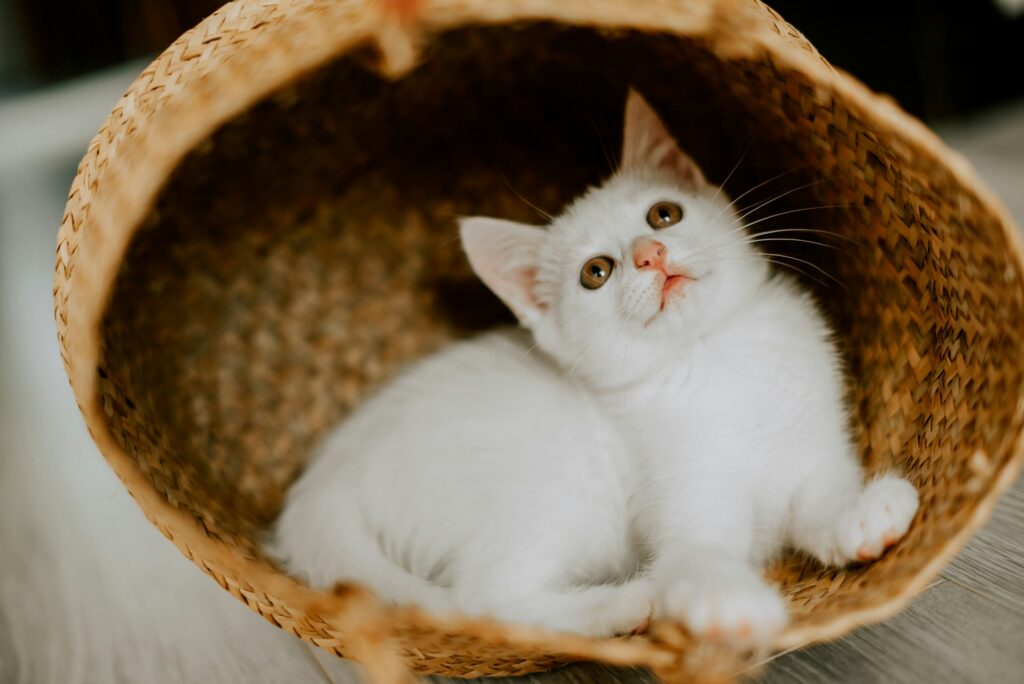
In the wild, injured cats will sometimes purr quietly to avoid drawing attention to themselves. It’s a survival tactic—stay low, stay calm, and avoid alerting predators or rivals to weakness. Domesticated cats may carry this instinct with them. So, if your usually vocal cat is suddenly quiet and purring in odd moments, it might be worth checking that everything’s okay health-wise.
19. They’re syncing with you.
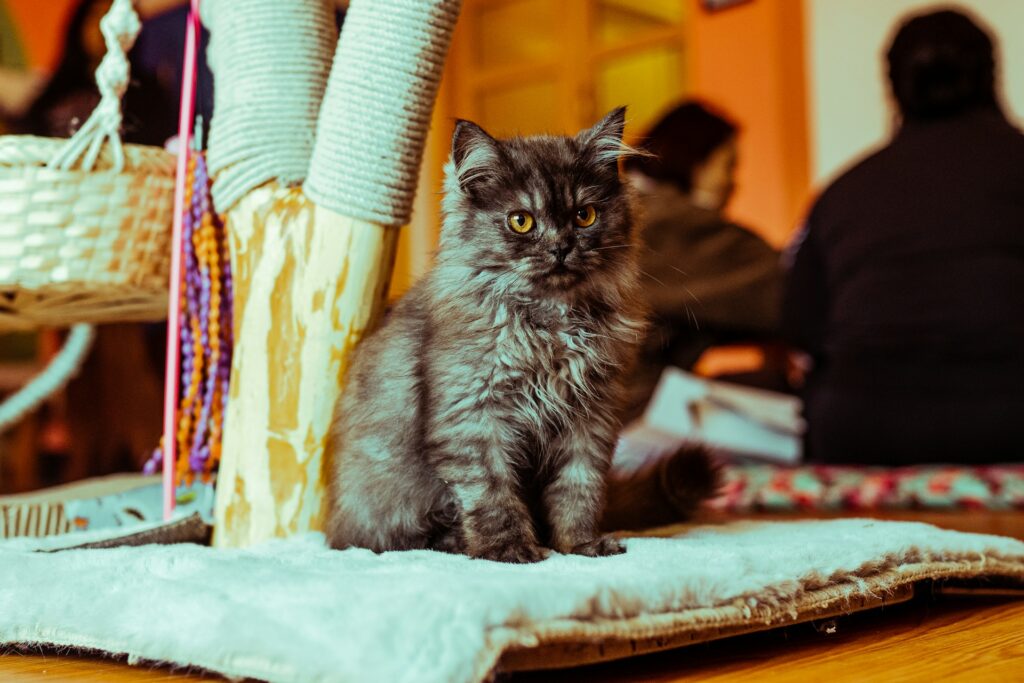
Some cats seem to purr more when you’re in a particular mood or routine. It’s as if they’re syncing up with your energy—purring during your bedtime wind-down or when you’re reading or relaxing. This behavioural mirroring builds connection and familiarity. Cats learn your rhythms and match them in subtle ways. Purring becomes part of your shared daily habits, like background music to your coexisting lives.
20. They’re doing it just because they can.
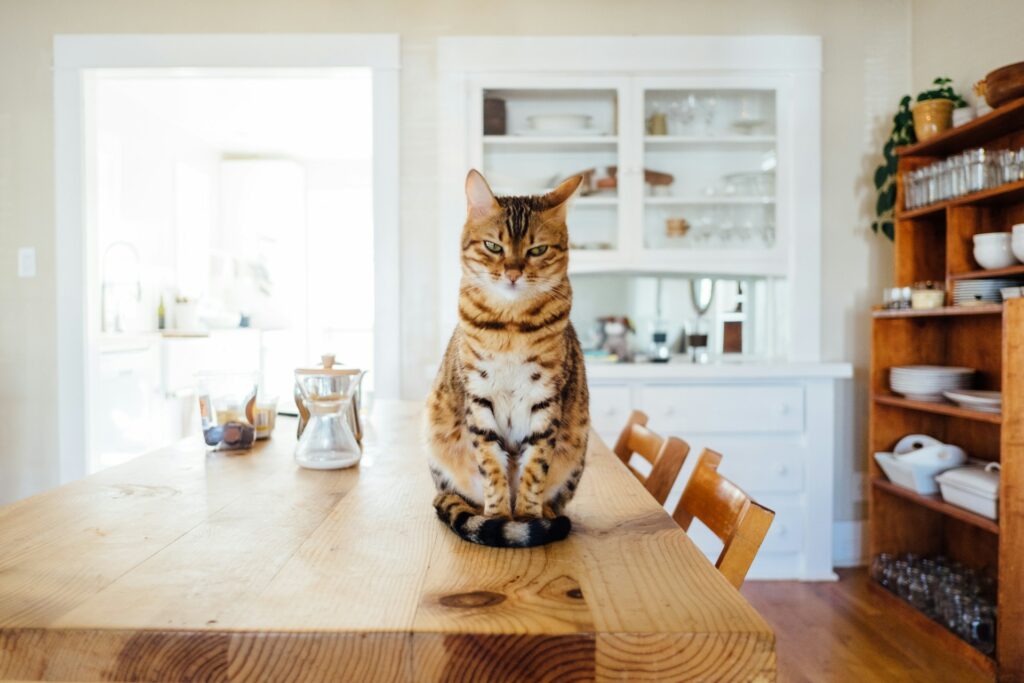
And finally, sometimes there’s no deeper meaning. Cats purr because they’re cats, and purring is part of who they are. It doesn’t always need a specific trigger—sometimes it’s just part of how they exist. That’s part of the magic of it. Cats are mysterious, intuitive creatures, and purring is one of their most beautiful mysteries. Sometimes it’s communication, sometimes healing, and sometimes… it’s just them being them.